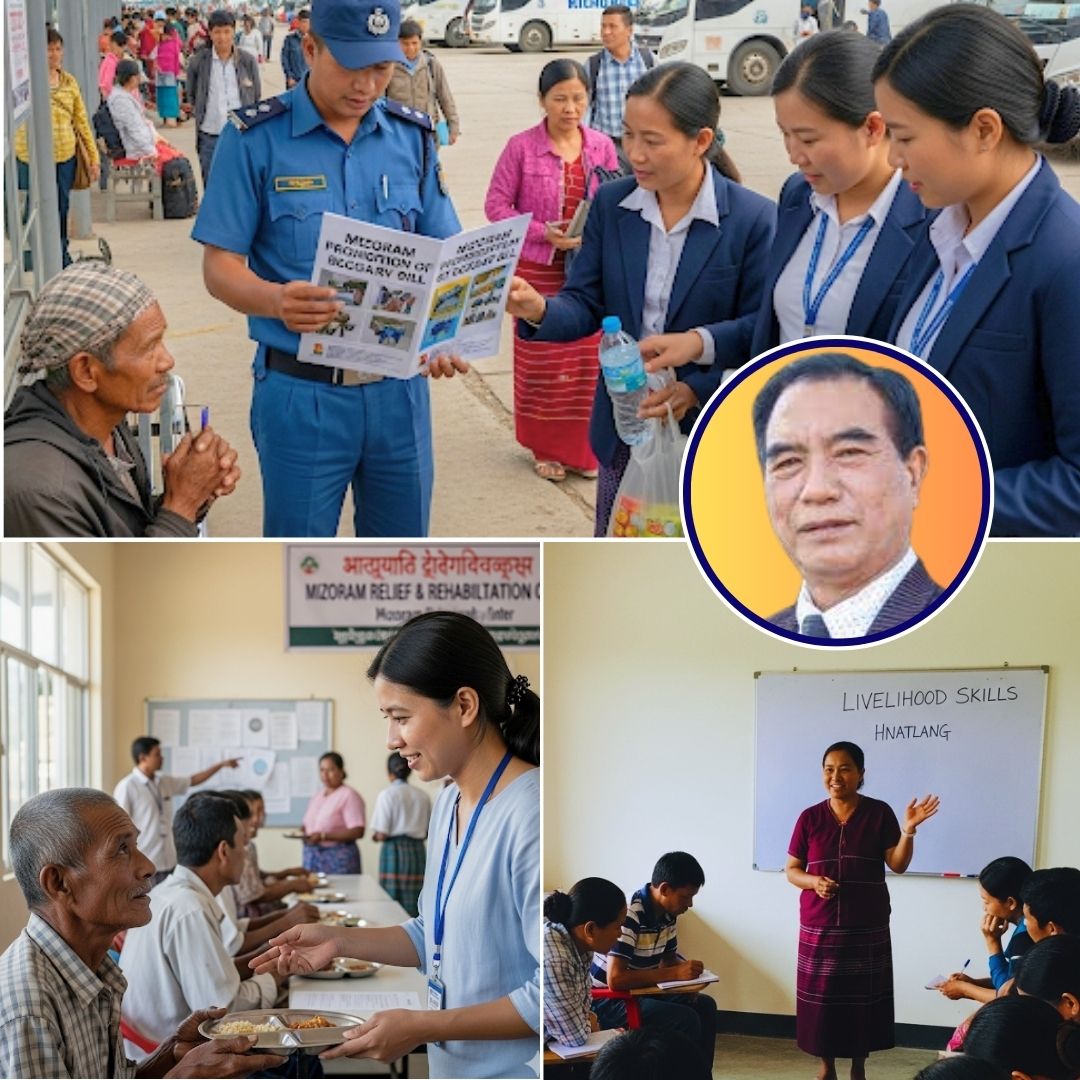The Mizoram Assembly passed the Mizoram Prohibition of Beggary Bill, 2025, with the aim to curb begging in the state, while also introducing rehabilitative measures for those affected. The bill was approved on August 27 amid concerns of a possible increase in begging linked to the upcoming inauguration of the Sairang-Sihhmui railway line on September 13 by Prime Minister Narendra Modi.
It mandates the formation of a state-level relief board and the setting up of receiving centres for temporary retention before beggars are sent back to their native states within 24 hours. The government highlights the bill’s focus on rehabilitation and sustainable livelihood options, though opposition members raised concerns about its alignment with Christian values.
Legislative Intent and Supportive Framework
Social Welfare Minister Lalrinpuii, who introduced the bill, emphasised that the legislation is not purely prohibitive but also seeks to assist beggars through sustainable rehabilitation programs. Mizoram currently has minimal begging due to strong social welfare schemes, active participation of churches and NGOs, and a supportive social fabric.
However, the government is apprehensive that the commencement of the railway line connecting Sairang to Sihhmui could lead to an influx of beggars from other states. To pre-empt this, the bill calls for a regulatory framework including the formation of a ‘relief board’ responsible for operating receiving centres. These centres will temporarily accommodate beggars, assess their individual situations, and arrange their safe return within 24 hours, or facilitate livelihood support to help them reintegrate into society.
Context, Debate, and Opposition
The bill’s passage was not without contention. Opposition leader Lalchhandama Ralte of the Mizo National Front argued that prohibition conflicts with Mizoram’s Christian values of compassion and dignity, cautioning that the state’s reputation might suffer. He proposed that community-driven and inclusive strategies, rather than outright bans, would be more effective in addressing begging.
In response, Chief Minister Lalduhoma clarified that the bill’s main motive is humanitarian – to help and rehabilitate beggars with cooperation from government bodies, NGOs, and churches. The bill was passed after thorough legislative debate involving 13 members, reflecting a mix of perspectives but ultimately a shared goal of social harmony.
The Logical Indian’s Perspective
The effort to address begging through legislation that combines prohibition with rehabilitation signals a progressive approach if implemented with empathy and dignity at its core. While the regulation aims to maintain social order and prevent exploitation of vulnerable populations, it must prioritise support systems over punitive measures.
The involvement of churches and NGOs in the rehabilitative process is a positive step towards inclusive social care, but constant vigilance is required to ensure no individual’s rights are compromised.











